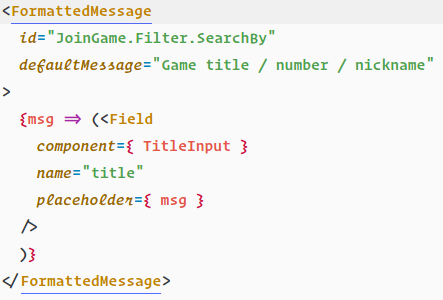The <Formatted... /> React components in react-intl are meant to be used in rendering scenarios and are not meant to be used in placeholders, alternate text, etc. They render HTML, not plain text, which is not useful in your scenario.
Instead, react-intl provides a lower level API for exactly this same reason. The rendering components themselves use this API under the hoods to format the values into HTML. Your scenario probably requires you to use the lower level formatMessage(...) API.
You should inject the intl object into your component by using the injectIntl HOC and then just format the message through the API.
Example:
import React from 'react';
import { injectIntl, intlShape } from 'react-intl';
const ChildComponent = ({ intl }) => {
const placeholder = intl.formatMessage({id: 'messageId'});
return(
<input placeholder={placeholder} />
);
}
ChildComponent.propTypes = {
intl: intlShape.isRequired
}
export default injectIntl(ChildComponent);
Please note that I'm using some ES6 features here, so adapt according to your setup.

